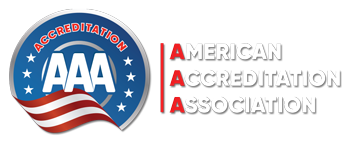Accreditation is covered in detail in the following articles. In this series of articles, we cover everything from how schools are accredited to who actually performs the accreditation, and what types of accreditation there are.
What Is the Meaning of Accreditation?
Accreditation for colleges is granted by a collection of evaluation bodies collectively known as accrediting agencies. They review each school’s curriculum offerings on a regular basis to ensure that each institution is providing students with a high-quality education experience.
What is the Purpose of Accreditation?
In the United States, there is no federal regulation of higher education in terms of academic quality and standards; rather, each state is responsible for enforcing its own regulations in this regard. Some educational institutions engage in dishonest tactics and provide low-quality education as a result of lax regulations provided by state governments. Because of this, prospective students may only verify an institution’s educational credentials through the use of independent accreditation organizations.
Accreditation on a regional vs. national level
Regional accreditation bodies, national accreditation bodies, and programmatic accreditation bodies are the three categories of accrediting bodies. There are seven regional accreditation boards that accredit public and private four-year universities, each of which is responsible for maintaining standards for a certain geographical area. It is important to note that the Western Association of Schools and Colleges is linked with two college accrediting agencies.
National bodies accredit trade schools and vocational colleges, which includes Bible schools, as well as other educational institutions. Nonprofit schools are accredited at the regional level, whereas for-profit colleges are accredited at the national level. Regional accreditation is granted to the vast majority of schools in the United States.
Accreditation of your school by AAA Accreditation
AAA is the American Accreditation Association, recognized by the US government- state corporation commission of the commonwealth of Virginia State, and authorized to transact its accreditation services by the articles of corporation under Title 13.1 of the Code of Virginia, to offer a full range of comprehensive accreditation services, the Standards of Accreditation of schools consists of a series of standards and modules that serve as indicators of educational excellence in the programs and services provided by our members, to become accredited, or have its accreditation renewed, by the American Accreditation Association
Why Is It Important to Check for Accreditation?
Obtaining Transferable Credits and Attending Graduate School
Some programs, such as graduate programs, are regionally recognized and only accept students who have earned degrees from other regionally accredited programs. This is especially true for individuals who want to pursue occupations that need advanced training or education. This is also true for students who are transferring to another institution: Regionally accredited colleges and universities often only accept credits from other regionally accredited institutions. Because both colleges have been audited by a regulatory agency, the rigor of their courses can be validated, enabling the transfer of course credit to be completed quickly and easily.
Accreditation and Employment
It is possible that businesses, such as the federal government, will require applicants to hold degrees from regionally or nationally approved institutions of higher learning. When looking for work in sectors such as education or nursing, students may be required to obtain certification or licensure first; in these circumstances, students may be required to acquire a degree from a programmatically approved institution in order to be eligible for these qualifications.
Accreditation for Financial Assistance
To be eligible for federal financial aid, students must attend a school that has been certified by the regional or national accreditation agencies. This includes loans, grants, scholarships, and work-study awards. It is determined whether or not you are eligible to receive federal financial assistance by completing the Free Application for Federal Student Aid (FAFSA). Even many state-level and private kinds of financial aid need completion of the FAFSA, and as a result, require regional or national accreditation to be considered.
Conclusion
The accreditation of your education is a critically significant aspect of your overall education. Many people, however, are unfamiliar with even the most fundamental aspects of the accreditation process. It is critical that you have a clear understanding of who accredits the institution and what that accreditation signifies. In this article, we have compiled the accreditation types and information for you. We hope it helps.
